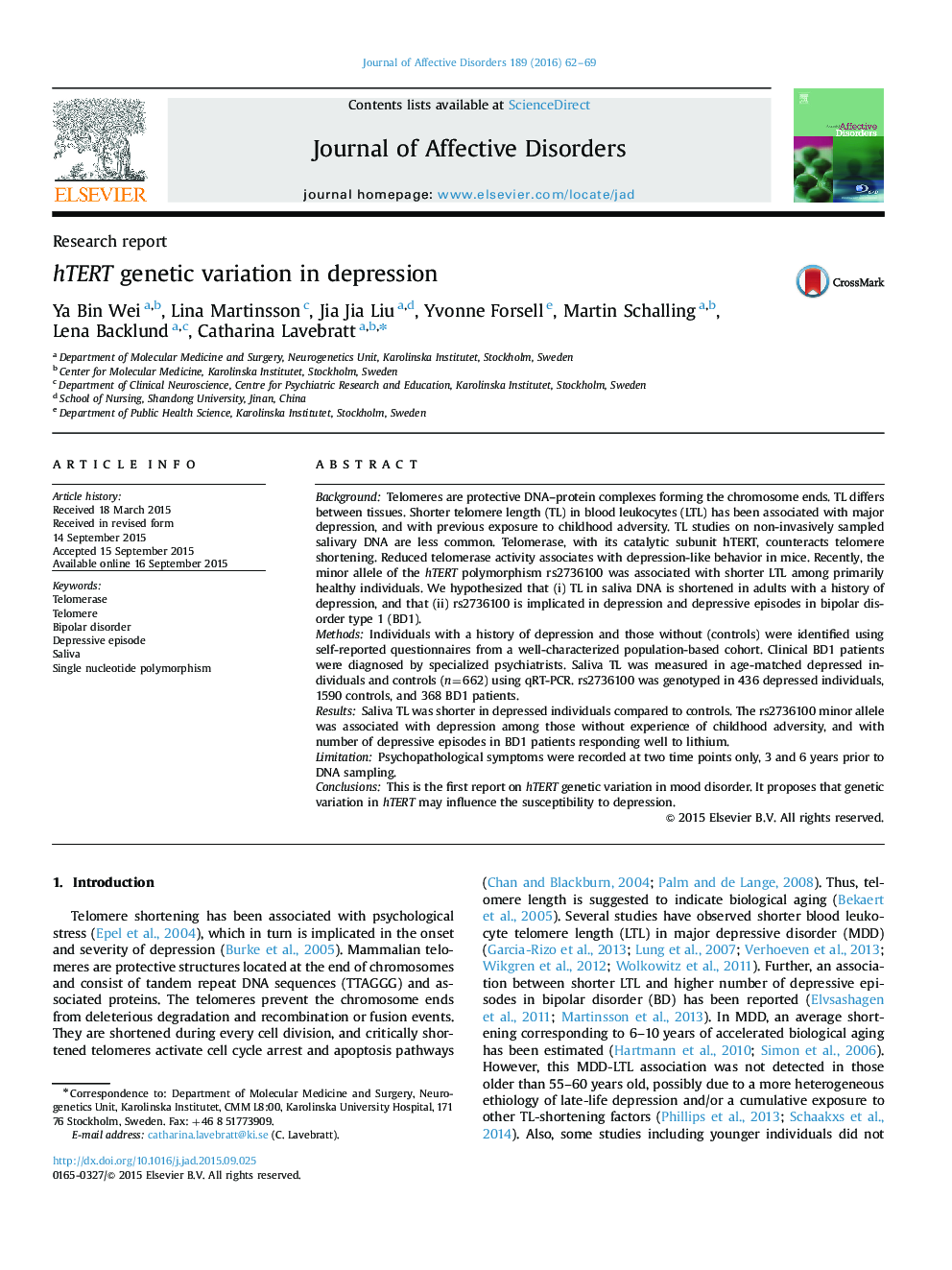| کد مقاله | کد نشریه | سال انتشار | مقاله انگلیسی | نسخه تمام متن |
|---|---|---|---|---|
| 6230837 | 1608136 | 2016 | 8 صفحه PDF | دانلود رایگان |

- Individuals with a history of depression have shorter telomeres in their saliva.
- The minor allele of the genetic variation rs2736100, in telomerase hTERT, is associated with depression.
- The rs2736100 minor allele is associated with more depressive episodes in bipolar disorder.
BackgroundTelomeres are protective DNA-protein complexes forming the chromosome ends. TL differs between tissues. Shorter telomere length (TL) in blood leukocytes (LTL) has been associated with major depression, and with previous exposure to childhood adversity. TL studies on non-invasively sampled salivary DNA are less common. Telomerase, with its catalytic subunit hTERT, counteracts telomere shortening. Reduced telomerase activity associates with depression-like behavior in mice. Recently, the minor allele of the hTERT polymorphism rs2736100 was associated with shorter LTL among primarily healthy individuals. We hypothesized that (i) TL in saliva DNA is shortened in adults with a history of depression, and that (ii) rs2736100 is implicated in depression and depressive episodes in bipolar disorder type 1 (BD1).MethodsIndividuals with a history of depression and those without (controls) were identified using self-reported questionnaires from a well-characterized population-based cohort. Clinical BD1 patients were diagnosed by specialized psychiatrists. Saliva TL was measured in age-matched depressed individuals and controls (n=662) using qRT-PCR. rs2736100 was genotyped in 436 depressed individuals, 1590 controls, and 368 BD1 patients.ResultsSaliva TL was shorter in depressed individuals compared to controls. The rs2736100 minor allele was associated with depression among those without experience of childhood adversity, and with number of depressive episodes in BD1 patients responding well to lithium.LimitationPsychopathological symptoms were recorded at two time points only, 3 and 6 years prior to DNA sampling.ConclusionsThis is the first report on hTERT genetic variation in mood disorder. It proposes that genetic variation in hTERT may influence the susceptibility to depression.
Journal: Journal of Affective Disorders - Volume 189, 1 January 2016, Pages 62-69